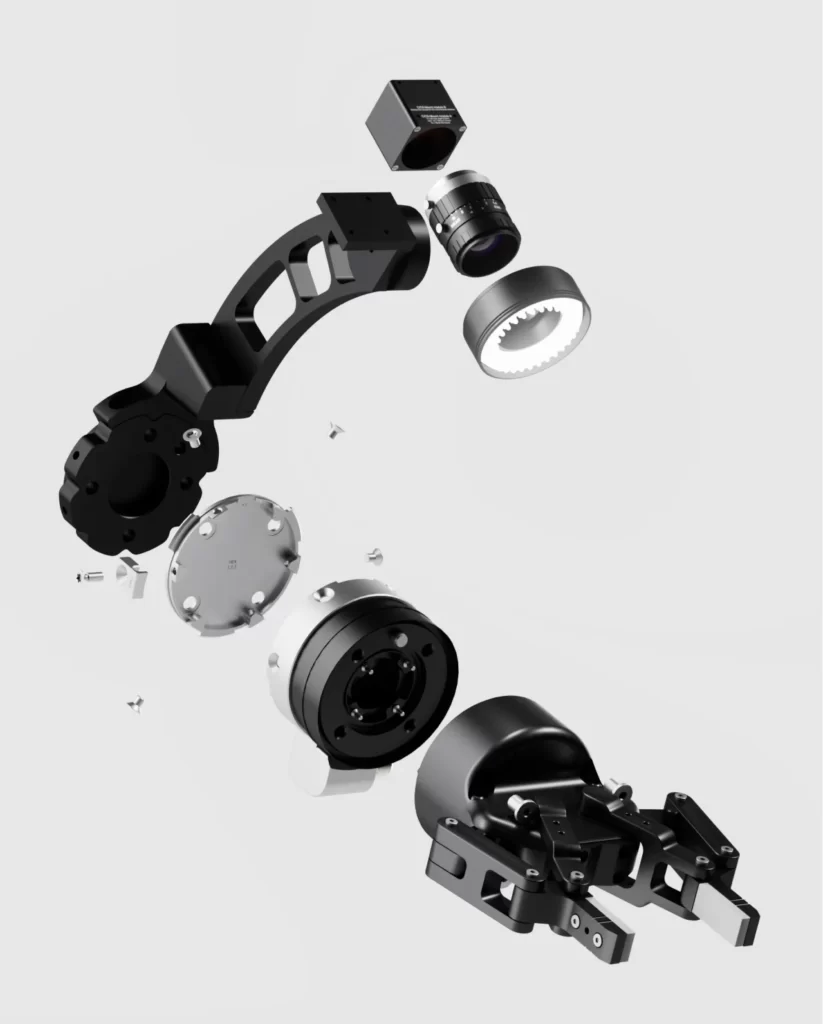ASIA ELECTRONICS INDUSTRYYOUR WINDOW TO SMART MANUFACTURING
Micropsi Tackles Complex Automation with AI Vision System
AI vision system vendor Micropsi Industries will showcase reflective disk picking and hook-hanging applications at ATX West in Anaheim this week. Mainly, these applications are too complex to automate with traditional programming. Thus, they exemplify the cutting-edge, variance-heavy solutions the company can solve with its MIRAI system.
To continuously develop new solutions such as these, the company has established a new application laboratory in Magdeburg, Germany. It collaborated with the Fraunhofer Institute for Factory Operation and Automation (IFF), its technology and research partner, in its establishment.
Specifically, MIRAI allows robotic arms to be controlled in real-time, in direct response to sensor information taught by human demonstration. The reflective disk-picking demo is shown in booth 4566 with a FANUC LR Mate industrial robot. It will highlight the software’s ability to enable the robot to adapt to environmental variances and interact with reflective surfaces and extreme lighting conditions in real-time. Meanwhile, it will put up a hook-hanging demo with a UR10e collaborative robot (cobot). It will highlight how MIRAI can deal with the positional variances of its target object by using all degrees of freedom to meet the target in 3D space.

“In our collaboration with our customers and other manufacturers worldwide, we continue to discover new applications that MIRAI can easily automate without expensive coding or knowledge of artificial intelligence,” said Gary Jackson, CEO, Micropsi Industries. “As attendees at ATX West see these applications in action, we expect they’ll recognize the unique applications that MIRAI could help them automate regardless of the variance issues that have kept them from automating before.”
New Use Case Lab Opens New Possibility in Robotics
The use case lab is based in Germany. Even then, U.S. companies are invited to discuss their automation challenges with Micropsi Industries’ U.S. team. Specifically, it aims to determine if the MIRAI vision system might be an appropriate solution to their task. If deemed a fit, the customer can move forward with the use case lab. It will work with customers to create videos, results, guidelines, and suggestions for hardware requirements.
“The partnership with Fraunhofer IFF opens up new possibilities for automation in applications previously considered not automatable,” Jackson said. “Fraunhofer IFF is not only internationally recognized for automation safety and factory planning but also for innovative automation concepts. They’re a fantastic partner for us, one that can quickly propel us and our customers towards flexible and robust AI-driven automation concepts.”
Experts from both companies collaborate closely to explore and implement entirely new solutions in industrial robotics. The main focus of the lab includes:
- Feasibility studies and innovative approaches: using Micropsi Industries’ AI-based vision system, MIRAI, the partners explore and test novel robot applications. MIRAI enables robots to dynamically adjust to workspace changes and handle tasks previously deemed too complex to be automated. Solutions for specific applications are developed through feasibility studies. They aim to create new benchmarks in industrial robotics and inspire industry stakeholders to adopt new automation solutions.
- Tailored and complex automation challenges: manufacturing companies can present their specific automation challenges to the use case lab. Through close collaboration, the application is developed for the first time. They are accompanied by comprehensive instructions that allow customers to replicate the final robotic solution. These instructions will eventually be made available to a wide audience, fostering knowledge transfer within the industry.
According to Dr. José Saenz, group leader for Assistive, Service, and Industrial Robots at Fraunhofer IFF, “For many years, our scientists have been researching future-oriented topics, such as the safe use of robots and artificial intelligence to prepare our customers for upcoming challenges. The technology and expertise of Micropsi Industries are an ideal complement to develop holistic, intelligent solutions for industrial production. We believe that this collaboration has the potential to revolutionize how companies utilize automation.”
The partners have already completed their first project. Specifically, it is a dual in-line memory module (DIMM)-insertion task using a FANUC LR 10 robot augmented by the AI-powered MIRAI vision system. The DIMM task is complex because the robot can precisely insert modules into delicate slots on a motherboard that varies in its position in the workspace. Thanks to MIRAI, the FANUC robot can deal with the variance and carry out the task rapidly and reliably.




